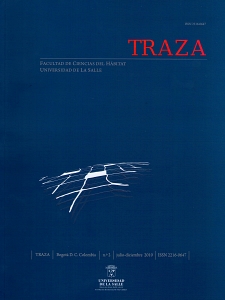Abstract
The objective of this article Aims to show some results of the research group “Marginality, spatiality and sustainable development (MEDS).” In relation to new forms to take part transition spaces. Makes clear alternative processes of a new meaning to the city through dynamic self-organization of society, leading to the urban rehabilitation. This search is supported on the theory of complexity and alternatives to sustainable development, experience in the city of Bogotá, which manages to overcome the traditional concept of economic development apply until this moment in the morphology of the city without any support sustainability . To this end, the investigative process conducted through a process methodological preset, which later with the knowledge of dialogue and the search for knowledge together is overtaken by another kind of participatory, co-creative and alternate, called the metamétodo; obtained investigative findings and conclusions from urban areas known as ecotons hologramátics, which constitute a habitat where human beings live, interact, builds and related elements of the environment differently to achieve changes conscience and territorial transformation with a new identity sustainable.Downloads
Download data is not yet available.



